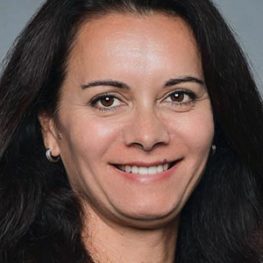Congruence Raises $50 million to Target Rare Diseases of Protein Misfolding
February 8, 2022
Canadian biotech Congruence Therapeutics, a company working at the interface of computational and experimental drug discovery to design novel small molecules for diseases of protein misfolding, said it raised $50 million in a tranched, series A financing.

Photo: Clarissa Desjardins, founder and CEO of Congruence Therapeutics
Amplitude Ventures and Fonds de solidarité FTQ led the financing, with participation from Lumira Ventures, Investissement Quebec, OrbiMed Advisors, Driehaus Capital Management, and others.
“Our industry faces a watershed moment where the application of novel computational tools, including machine learning, is poised to disrupt traditional drug discovery,” said Clarissa Desjardins, founder and CEO of Congruence Therapeutics. “This financing will allow us to build out a world-class team of ‘drug hunters’ to efficiently design novel small molecules for rare diseases of high unmet medical need, and progress them toward and into the clinic.”
The cornerstone of the Congruence strategy is its proprietary computational platform, Revenir, a tool for the rational design of stabilizers that circumvents the target validation, protein purification, high throughput screening and hit triage stages. This purpose-built technology uses mathematical modeling, physics, and machine learning to characterize the biophysical defects of misfolded proteins that cause disease, then designs compounds to rescue the mutated proteins by correcting these defects in silico. Congruence is currently deploying Revenir in indications with high unmet medical need. At the same time, the company is building a proprietary database containing the biophysical properties of mutant proteins, which can be used to develop stabilizers for diseases caused by protein families outside of the Congruence’s current focus.
Desjardins was previously founder and CEO of Clementia Pharmaceuticals, which was sold to Ipsen in early 2019 for $1.3 billion. Clementia’s lead product, palovarotene, was recently approved in Canada and is under review at the FDA as the first treatment for fibrodysplasia ossificans progressiva, a debilitating and progressive rare bone disorder.
At Congruence, Desjardins has put into place a team of ‘drug hunters’ with domain experience in rare disease strategy and clinical development, computational chemistry, medicinal chemistry, and business development.
Concurrent with the financing, Kenneth Valenzano has joined the company as chief scientific officer. Valenzano most recently served as senior vice president of drug discovery for Amicus Therapeutics, where he participated in the discovery and development of several small molecule chaperones including Galafold, the first and only orally-available, small molecule treatment for Fabry’s Disease approved in Europe and in the United States in 2018.
Author: Rare Daily Staff

Stay Connected
Sign up for updates straight to your inbox.
